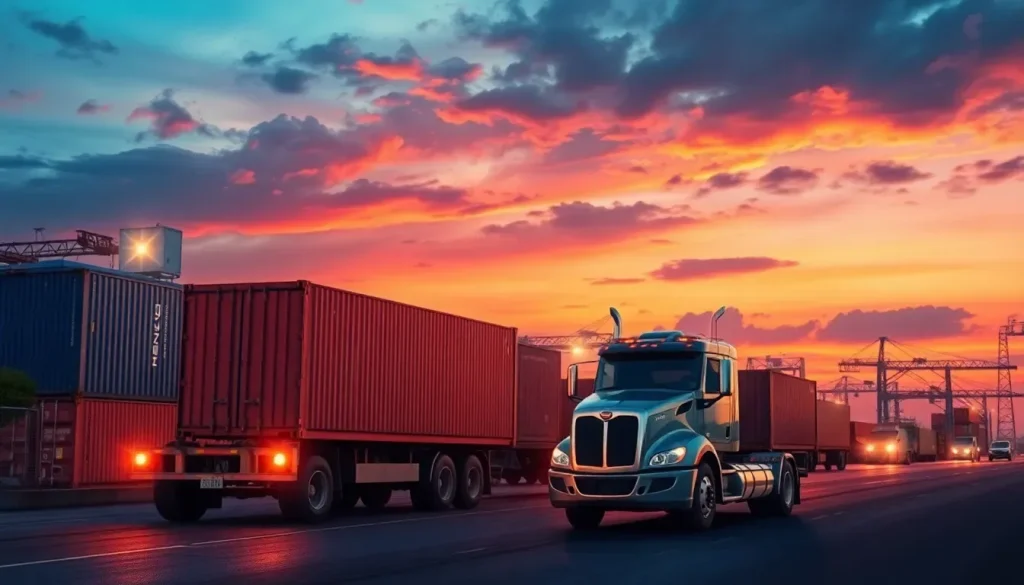Sunset Transportation and Sustainable Supply Chain Development

Transitioning to sustainable practices in logistics is not merely a trend; it’s a necessity that businesses must embrace for the well-being of our planet. Sunset Transportation exemplifies this commitment, achieving notable milestones in sustainability over the years. With a dedication that spans decades, the company emphasizes that meaningful environmental change is attainable through consistent efforts and strategic planning.
Jill Gross, Vice President of Strategic Accounts at Sunset Transportation, highlights that the focus on sustainability transcends mere recognition. It reflects a deeper accountability to employees, customers, and the environment. “By caring for our planet, we show our employees that we care about them and the future,” she asserts, reinforcing the notion that sustainable business practices can lead to long-term success.
Transforming Values into Tangible Actions
Measuring sustainability goals can often present challenges for many organizations. Gross elaborates that the journey toward sustainability requires time, dedication, and a series of incremental improvements. “It’s tough to do from a personal business standpoint; you’ve got to start somewhere,” she emphasizes.
Sunset Transportation has taken significant steps in this direction. Recent efforts have led to a remarkable 98% reduction in paper usage over the last five years through the digitization of workflows, invoicing, and carrier billing via EDI and API integrations. Their new facility is equipped with energy-efficient lighting, showcasing a commitment to reducing their carbon footprint.
Furthermore, Sunset provides data analysis tools that assist customers in monitoring emissions and developing reduction strategies. “We’ve started looking at emissions, measuring them accurately, and collaborating with customers to improve those figures,” Gross mentions.
Implementing Smart Strategies for Sustainable Operations
Achieving sustainability in logistics begins with practical strategies such as load consolidation, route optimization, and careful carrier selection. However, these improvements are far from simple and require comprehensive planning.
- Load Consolidation: This requires foresight, inventory management, customer collaboration, and precise scheduling.
- Route Optimization: A long-term project that encompasses future distribution center locations and customer proximity.
- Carrier Selection: An immediate opportunity to enhance sustainability through tracking carriers who utilize modern equipment and hold certifications like SmartWay or Arbor.
Sunset actively monitors carrier performance to help customers choose partners aligned with their sustainability aspirations, ensuring that environmental considerations are integrated into logistical decisions.
Striking a Balance Between Profit and Purpose
For sustainability initiatives to thrive, they must also be economically viable. Gross insists that sustainability efforts should not solely exist because of regulatory demands but should make sense across multiple aspects of the business. “You have to look for strategies that benefit the bottom line while also being environmentally responsible,” she explains.
To facilitate this balance, Sunset utilizes a carrier onboarding platform that emphasizes safety and compliance while identifying carriers with advanced fleets or sustainability certifications. This dual approach not only streamlines operations but also enhances the tracking of sustainability efforts.
Looking Toward the Future of Sustainable Logistics
Gross notes a growing trend among customers who increasingly seek environmentally responsible shipping solutions. Many are forming sustainability committees to diligently track their progress. For companies beginning their sustainability journey, Gross recommends establishing clear ownership and advancing step by step.
“When you create a sustainability committee or assign a dedicated person, you can start measuring and improving,” she advises. “The landscape is constantly changing, and it’s exhilarating to witness how the industry is evolving toward a more sustainable future.”
To explore more practical steps for implementing sustainable business practices, you can watch our comprehensive discussion on this topic. The insights shared can guide companies in making impactful decisions that resonate with both profit and purpose.
Check out this insightful video on sustainable supply chains that further elaborates on these concepts:
This article is part of Fleet Equipment’s On the Road series, sponsored by Noregon. Subscribe to our newsletter to stay updated on best practices and servicing insights to keep your fleet on the road.




Leave a Reply